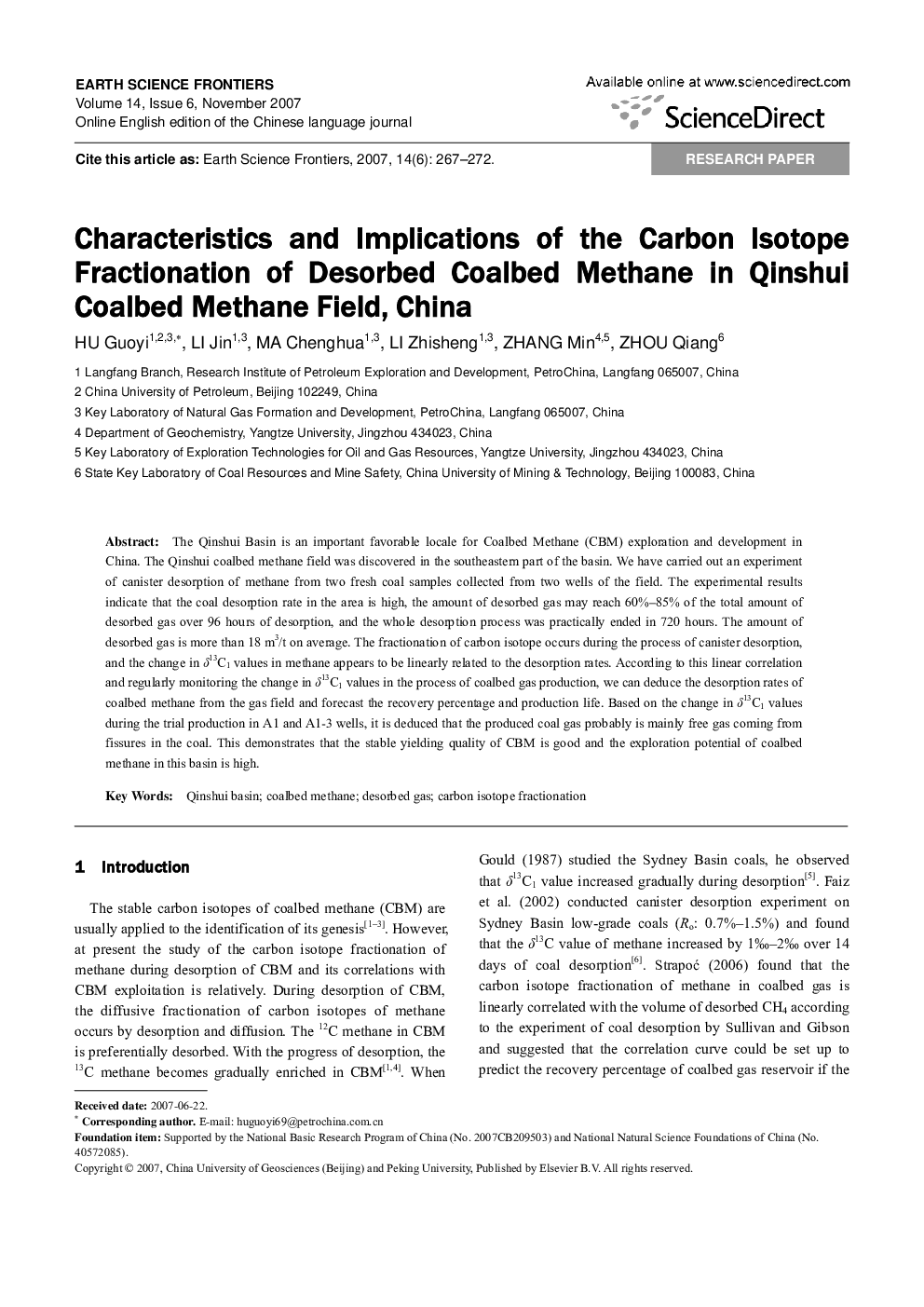| Article ID | Journal | Published Year | Pages | File Type |
|---|---|---|---|---|
| 4701584 | Earth Science Frontiers | 2007 | 6 Pages |
The Qinshui Basin is an important favorable locale for Coalbed Methane (CBM) exploration and development in China. The Qinshui coalbed methane field was discovered in the southeastern part of the basin. We have carried out an experiment of canister desorption of methane from two fresh coal samples collected from two wells of the field. The experimental results indicate that the coal desorption rate in the area is high, the amount of desorbed gas may reach 60%–85% of the total amount of desorbed gas over 96 hours of desorption, and the whole desorption process was practically ended in 720 hours. The amount of desorbed gas is more than 18 m3/t on average. The fractionation of carbon isotope occurs during the process of canister desorption, and the change in δ13C1 values in methane appears to be linearly related to the desorption rates. According to this linear correlation and regularly monitoring the change in δ13C1 values in the process of coalbed gas production, we can deduce the desorption rates of coalbed methane from the gas field and forecast the recovery percentage and production life. Based on the change in δ13C1 values during the trial production in A1 and A1-3 wells, it is deduced that the produced coal gas probably is mainly free gas coming from fissures in the coal. This demonstrates that the stable yielding quality of CBM is good and the exploration potential of coalbed methane in this basin is high.
